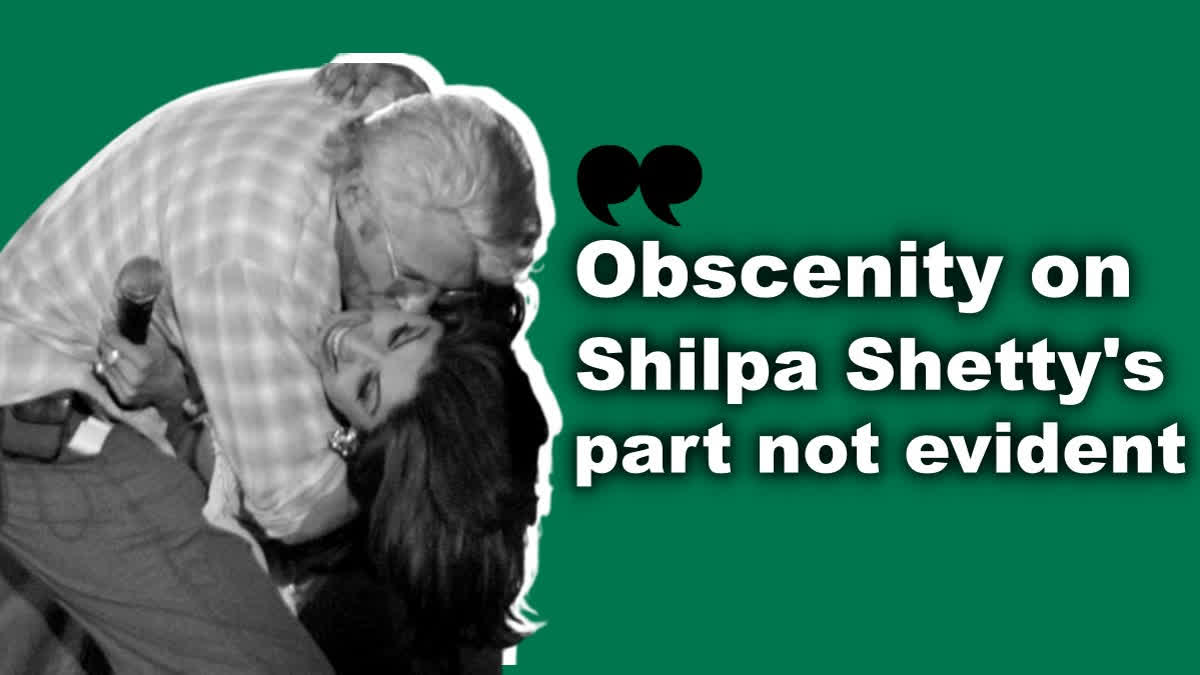Mumbai:A woman being groped on a street or public transport cannot be termed as "participative" on her part in such incidents and she cannot be prosecuted for failing to act, a Mumbai court has held in the 2007 obscenity case over Hollywood star Richard Gere kissing actor Shilpa Shetty at a public event.
In the present case, the respondent (Shetty) had not kissed but was kissed. Obscenity on her part is not evident, Additional Sessions Judge S C Jadhav said last week while upholding a magistrate court's order discharging Bollywood actor Shetty in the case. The detailed order was made available on Tuesday.
- Shilpa Shetty obscenity case timeline:
- Following complaints after the incident in 2007, a case was registered in Rajasthan against both Gere and Shetty under various sections of the Indian Penal Code (IPC) and the Information Technology Act for obscenity.
- It was transferred to Mumbai from the court of a first class magistrate in Rajasthan on the Supreme Court's order in 2017.
- In January 2022, a magistrate court in Mumbai had discharged the Shetty from the case.
- The prosecution then moved an application before the sessions court challenging the magistrate's order. It had claimed Shetty was very well aware of the fact that press and mediapersons were present at the event.
- To kiss in public is an offence and it is a "bilateral act". The accused did not protest and her act amounts to illegal omission her part, the prosecution had said.
- It claimed the respondent was aware that her act will definitely be broadcast on news channels, which showed her mental culpability.
In 2007, Gere had kissed Shetty on her cheeks when they had come together on stage for an AIDS awareness programme in Rajasthan. The prosecution had said there was ample evidence against the accused (Shetty) to frame charges under IPC section 292 for obscenity, provisions of the Information Technology Act and the Indecent Representation of Women (Prohibition) Act, and prayed for setting aside the magistrate's order.
However, Shilpa Shetty, represented by advocate Prashant Patil, opposed the plea saying the lower court's order was "proper and a legal one". There is no material to frame charges and therefore, there is no perversity in the impugned order. Hence, the revision application needs to be dismissed with heavy cost, Patil argued.
